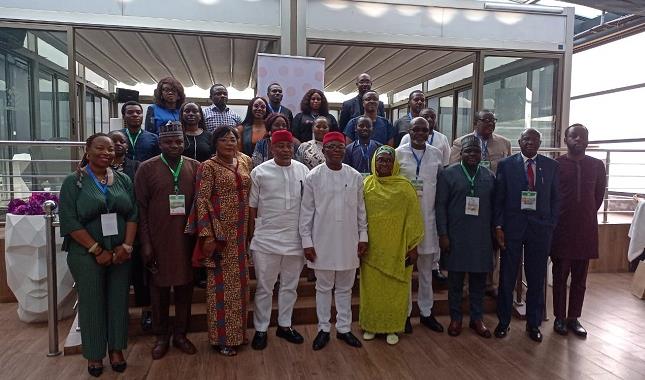As part of the effort to support Nigeria’s plan for a decarbonised, low-carbon, and climate-resilient economy, the Climate Parliament Nigeria (CPN) has advocated for an explicit and comprehensive legislative framework.

To lay the foundation for the commencement of this process, the body on Thursday, October 6, 2022, in Abuja, organised a workshop sponsored under the United Nations Industrial Development Organisation (UNIDO) Parliamentary Action on Renewable Energy (PARE) programme to galvanise the interest of National Assembly members and ensure that this required governance structure is in place.
While addressing the participants at the event, the Chairman of the group, Sam Onuigbo, lamented that Nigeria continues to battle with the problem of poor energy despite the abundant resources in the country that can be used to generate electricity.
Only 55.4% of the total population of over 211 million has access to power despite the government intervention to solve this setback through the unbundling of the sector, Onuigbo said.
He added that aside from having to tackle this acute energy disaster, Nigeria is also bound by her international obligations to drive a low-carbon economy.
This responsibility, according to him, is one of the reasons why Nigeria is eager to deploy more renewable in her energy mix, which is being demonstrated by the various off-grid projects undertaken by the Rural Electrification Agency (REA) to foster this ambition.
The lawmaker recalled how in 2015 the Federal Executive Council adopted and approved the National Energy and Energy Efficiency Policy (NREEEP) to provide critical support and remove vital barriers restricting the development of renewable energy and energy efficiency in Nigeria.
Regardless of the laudable strategies outlined in this policy, the group leader expressed fear that the blockages to robust renewable energy-driven Nigeria might persist without a corresponding legislative framework.
“Thus, explicit and comprehensive legislation is imperative to this,” he stated.
In his remarks, the Minister of Power, Abubakar Aliyu, acknowledged that the Federal Government recognises climate change considerations as a major factor in national development.
Represented by Bem Ayangeaor, Assistant Director, Renewable and Rural Power Access, the minister said it is, therefore, necessary to mitigate the effects of climate change through the implementation of renewable energy and adaptation projects for a safer environment, in line with global best practices.
“In this vein, the Federal Government’s Electricity Vision 30:30:30 includes 30% renewable power into the nation’s electricity mix of 30GW by the Year 2030,” he hinted.
The country’s mitigation and adaptation measures, according to him, are guided by the new National Climate Change Policy, whose vision is low-carbon, climate-resilient Nigeria. They are also aimed at ensuring sustainable development as well as a climate-proofed economy through engagements with multiple stakeholders including policymakers, the private sector, civil society, academia, and local communities.
The nation’s power chief pointed out that the sector as a medium of energy conversion is critical in the mitigation of climate change because of its huge contributions to CO2 emissions globally.
Therefore, limiting the C02 emissions from in-power generation would significantly reduce global emissions, he noted.
To this end, he said, the federal government has developed policies and regulations to promote the exploitation of its renewable energy resources to increase electricity supply in Nigeria in a sustainable manner in tandem with its commitments in the Paris Climate Agreement.
“Leveraging on the incentives provided by these policies, renewable power projects especially decentralised solar-powered mini-grids are being developed with private funding to provide access to Nigerians,” he disclosed.
He commended the Climate Parliament Nigeria for conceiving it wise to put together the capacity-building exercise as an enabler for the development of competencies and skills for effective and sustainable implementation of climate change measures.
“I’m hopeful that new strategic approaches capable of making Nigeria achieve its climate change goals towards a climate resilient, will be gained at this workshop,” he submitted.
By Etta Michael Bisong, Abuja
